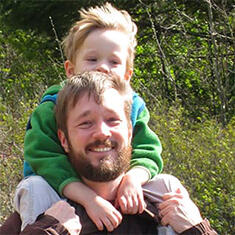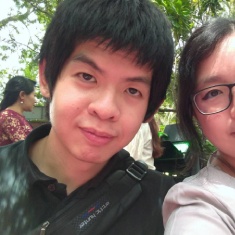Remote Team GameDev
With Expert Support
Game development without frustration or pressure
Video courses are tedious, but if you learn by making original games there's a fear of getting stuck. Our training calls get members unstuck.
All games we make are freeware, for fun and practice. We don't worry over if a kind of game sells lately, only if it sounds like fun to create.
No one tells you what to do. Pick any games and roles you want. If you're doing a piece (ex. music, art), you decide how it ought to be.
You don't need experience to do something. Do it to get experience!
We don't do ranking or contests. Our community improves together.
HomeTeam is like how kids imagine game making should be: do what you want, how you want - sounds like chaos, but with our system games get released! A few members even work in the game industry, but enjoy the freedom and flexibility of our approach to also make games just for fun.
Make games with teams and learn as you go
If you're a beginner we'll help you learn the fundamentals. If you're more experienced we'll help you pitch and lead a team.
Get the benefits of game jams, without the time pressure (our games take 2-5 months).
You'll collaborate with many of the same people on later projects. Because of this, we take time to help one another improve.
No current game interests you? We'll help you prototype, plan, and lead one that does.
Scheduling training calls is easy using our appointment system. Your leads and teammates will never get stuck.
Teammates having access to training lowers the experience bar for finding peers who can work well together.
Flexibility and support designed for busy people
We help you get better results from the same time you already put into game making.
Most members fit in a few hours weekly. Do it whenever it works best for you, as much or as little as you'd like.
Do only the parts that interest you. Our teams and process take care of the rest.
If someone drops the ball on something, it's fine! We fill in and cover for each other.
Even if you do just one thing on a game, the game will finish on time, with you credited. We'll see it through, so you can participate without worrying about future availability.
If you're leading a team and can't record an occasional weekly update, we'll cover it.
Detailed credits for every game
We take credits seriously. We understand that whether you're pointing a friend, family member, or recruiter to a game, the first thing they want to know is "what did you do on it?"Because of this, part of the work we do for our members is going through the project history to prepare specific credits. We don't simply list names as "programmers" or "artists" but instead we make clear who made exactly which model, designed which level, fixed which bug, composed which song, and so on.See for yourself on any of the games we've released:
Learning materials

A library of our learning materials are included with membership in HomeTeam (no added cost):
2 intro to game programming video courses: 5+ hours, rated 4.6 and 4.89 on Udemy where they've been used by 350,000 students
HomeTeam Playbook: 50 page PDF about our group approach, updated quarterly to reflect our latest best practices and evolving community traditions
Hands-On Intro to Game Programming digital textbook: 550 page full color PDF with example code for 6 starter retro games, owned by hundreds of thousands of students
Videogame Developer's Strategy Guide: 440 page PDF with 50+ articles in 9 categories, includes sections assigned in college game design courses
From Tutorials to Original Games: 30-page exercise PDF booklet on process for identifying tasks, breaking down large games into actionable steps, and abstract coding basics
Practical Game Design 2.0 (recently updated!): Game design tips by a long-time member Gabriel Cornish on principles, concepts and terms he's found useful in his career as a professional senior game designer
Leveling Up a 1st, 2nd, 3rd Pitch: 18 page PDF by the HomeTeam founder on common differences and key factors to consider when choosing which game ideas to pitch and lead a team to develop next
Young Videogame Developer's Journal: 50 page PDF of lessons learned from dozens of beginner-level game projects
3 audiobooks: 14.5 hours, includes full ebook transcripts, 98% 5 star ratings (Self-Command, Self-Doubt, and Self-Calm), with strategies for staying on task, starting things we're new to, and being more reasonable with ourselves
Two short booklets prepared by former project leads: one about being new to coding in a shared codebase (by member Jeremy Jackson), another about leading your first remote team project (by H Trayford)
Upon completing the optional first month on boarding email series - full videos from 2 online industry speaker conferences: EnjoyGameDev's 8 talks and GameDevBiz's 6 talks
NEW Complete Every Project You Start: Be Your Own Producer - 4 hour course teaching how we release every game on time, plus business development thinking useful outside our group for solo, commercial, or non-game projects
NEW Improve with Every Project: A Guide to Becoming a Better Game Dev Leader - 40 page PDF by members (written by Michael Monty, edited by Patrick Moffett) with tips for new leads, based on research done with around 30 people who led multiple games in HomeTeam
More than 100 videos of career discussions with industry guest speakers. New talks are live on zoom monthly, followed by members hanging out to chat - attendance is optional, audio is later released free on our podcast
Support Network
We bring together qualified, friendly people to help you on your quest.

Chris is the founder of Brave Lighthouse LLC and the HomeTeam GameDev community. His experience includes technical game design for EA, prototyping at Will Wright's R&D company, engine design with a start-up, developing a top-selling mobile game, and speaking at conferences. He's released over 150 podcast interviews, does coding demonstrations viewed by millions, and 300,000 students use his online courses. Outside his company, Chris is IndieCade's alumni lead, speaks and volunteers with high schools, recently chaired IGDA LA’s board, and teaches rapid game prototyping part-time at Northeastern University.

H is a professional software engineer and is the founder of Renegade Applications, LLC. He started making games in 2012, publishing games for the iOS App Store and itch.io, including four with HomeTeam. He has a B.S. in Mechanical Engineering, a Masters degree in Engineering Management, another in National Security and Strategic Studies, and is pursuing a post-baccalaureate in Applied Computer Science.

Christer has been a freelance game developer since 1993. He has shipped dozens of games, created the 1 Game A Month movement (#1GAM), and has published three books. Christer is our Expert Teammate at HomeTeam, helping members learn by overcoming challenges in community projects, contributing example demonstrations, and providing a second professional's perspective.

Alex MN is a professional writer and narrative designer with a diverse background in games journalism, art and education. She's an active writer with the Beyond Skyrim modding community and strongly believes in the power of collaboration. As a graduate of The Narrative Department and a credentialed teacher, Alex is excited to help others develop their game writing and narrative skills, especially when it comes to environmental storytelling in level design.

Chase is a freelance game composer and speaker with 9 years of industry experience. He's composed for nearly 20 games, including Jurassic Park VR, I Can’t Escape Darkness, Cubic Climber, Super Happy Fun Block, Aground, and Potions Please. Chase received AA's in both Audio Engineering as well as Music Theory and Composition, in addition to a BM in Media Composition. He grew up in Chicago and currently resides in Los Angeles, collecting physical retro games as a hobby. Chase co-hosts the Game Audio Hour podcast.

Victoria is a technical artist with a widereaching background in games, film, and mixed reality. Her past work has ranged from indie games to large scale productions including both the cozy multiplayer game Palia and the television series Obi-Wan Kenobi. Additionally, she has previously developed curriculum for multiple Unreal Engine university courses. Victoria especially loves helping others with blueprints and optimization. She’s available for assistance with general game development in Unreal as well as in-engine tool development.

Kartik has a degree in Computational Media from Georgia Tech, and is the founder/CEO of Finite Reflection Studios. Throughout his college and professional career he has worked on over 20 games and has spent the past 5 years refining his approach to UI design and implementation. He has given talks at various conferences regarding UI design and hopes to continue sharing and refining his knowledge base. He lives in Atlanta and has two cats named Zuko and Azula.

Karen has been making games and teaching game development for nearly 20 years. Her projects have ranged from AAA blockbusters for entertainment (Age of Mythology, Halo Wars) to tiny game demos showing math in action (Pythagorean Paparazzi). Millions have played her game levels and she has taught hundreds of in-person game development classes. She studied Architecture at Texas A&M University, but was quickly lured away into games. Her favorite level design tip: cultivate curiosity - notice something new in your environment every day.

Tyler is a game developer and 3D modeler for games. He lives in central Illinois with his wife and 4 kiddos. Since joining HomeTeam in 2019, he has contributed to more than a dozen games, been a Game Changer for 13 quarters, led three Unity projects, and also led our first Unreal 5 game, RoboHunters. Tyler’s focus is on 3D modeling and art asset production. He is available to assist with any part of the 3D pipeline, including modeling, rigging, animating, UV mapping, baking, texturing, and finally integration back into Unity, Godot, or Unreal. Tyler has experience with Blender, ZBrush, Substance Painter, and Substance Designer, in addition to general Unreal 5 development, and can help get you familiarized with the software, techniques, and process.

Liz is an Emmy award-winning designer who has been working in the design industry for 13 years, ten of which have been in the field of UX design. She has worked as the UX lead on games for Turner Sports, Cartoon Network, the NBA and FanDuel. In addition to her day job, Liz is the co-founder of Laserblast Studios, working as a game designer and pixel artist on the indie game Thin Ice. She lives in Atlanta with her pets, husband and many plants.

Kyle is a mainframe systems programmer by day, but began programming by making games as a hobbyist in the 90s. He's practiced a variety of coding environments, but these days is focused on Godot—an open source, beginner friendly, yet powerful alternative to engines like Unity or Unreal. In HomeTeam Kyle helps members learn to solve problems in Godot. (Godot is a recent addition to HomeTeam, but we still also have projects in Unity C# and browser JS!)

Randy Tan began as a consistent collaborator in HomeTeam for years, contributing to 30 HomeTeam projects. He now officially helps provide added support to fill in on projects. Professionally he's also had a key role in developing business training simulations, including ones used by PepsiCo and Nestlé, and commercial game development experience on branded promotional games (for a pet food company) and a game for the Central Bank of Malaysia's museum. As his day job, Randy Tan serves as the CTO of Gameka, where's he working on app, game, and full stack web development, organizing lines of communication, automating routine tasks, and steering the business away from risks in chasing hype or fads. He's proud to have taken part in numerous game jams over the years.

Jonas is a freelance software engineer with a master's degree in computer science. He is the lead programmer of Subnautica, a speaker at various conferences including GDC, and also runs a workshop on game development best practices. Jonas specializes in performance optimization, maintainability, refactoring, and code reviews.

Jeremy began making games in 2014 using PyGame, which led to a career change into programming. He's developed systems for the community to simplify new member onboarding, chat moderation, and various backend automation. Highly involved with the community since it began, Jeremy has pitched and led over half a dozen released team games made in either HTML5/JS or Unity/C#.

Rob has spent 12 years in Career Services, primarily in the tech and gaming industries. 11 of those were at Full Sail University working with students, alumni and industry partners. He found a passion helping people understand the importance of good professional demeanor, helping them hone their networking and communication skills. Rob has a special arrangement with HomeTeam to meet with advanced members about career development.

In 2005 Jake went full-time indie and formed Grey Alien Games. 13 years later he has more than ten games under his belt including Shadowhand and Regency Solitaire for PC/Mac. He has experience with every stage of the development process from design and implementation to testing and localisation. Jake meets with advanced members to set and review goals toward making commercial games as an indie developer.
About Training Calls and Support Network
Training calls aren't just to help get you out of a bind - though they're also good for that! - they're a normal part of the process for how learning works in HomeTeam. The training we do is project-based, working through real challenges on original team projects.Trainers don't just fix your problem. We guide you through how we diagnose and troubleshoot, answering all your questions, so you're better equipped for the future.Our lead trainer, Chris, meets about troubleshooting code or design, project leadership, and non-technical challenges common for game developers (motivation, consistency, picking up new skills, etc.).Members can also meet with our support trainers - specialists in fields including level design, audio, game art, UX, Unity optimization, Godot, Unreal, JS, and more - up to every other week for help related to HomeTeam projects.Although vocational training is not our main purpose, some members have found that experience with our process helped their career prospects by improving their experience, portfolio, and soft skills. Members looking to someday make games commercially can meet with Jake or Rob to discuss next steps after leading projects in HomeTeam.
Game Industry Zoom Career Chat Monthly
Members have access to videos of all past industry visitors. Below is a partial list.Attending the monthly zoom is optional, but enables members to get their related career questions answered live. We usually hang out chatting more off the record (not recorded) for an hour after their career discussion.A few months later we share the audio as the HomeTeam GameDev Podcast. We've been doing this consistently since 2015, with over 160,000 downloads (as of Nov 2023). It's another way we raise awareness of the group to bring you new teammates.
© 2013-2023 Chris DeLeon for Brave Lighthouse LLC (previously Gamkedo LLC). Contact the founder Chris DeLeon via chris@HomeTeamGameDev.com Privacy Policy. All rights reserved.